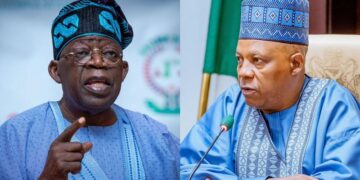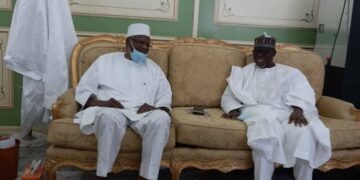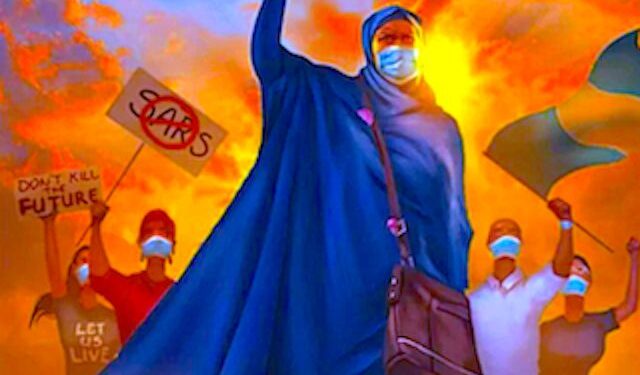There comes a time in a nation’s history when shame is no longer just a consequence—it becomes a culture. And when shame itself begins to feel ashamed, we must ask: what have we become?
In today’s Nigeria, we are witnessing something deeply unsettling: a culture where shame no longer triggers reform, but is deflected with propaganda and denial. We live in a time where shame itself is ashamed of us.
Where national disgrace is met with government-issued silence. Where scandals are normalized. Where excuses are mass-produced, but solutions are in short supply. And perhaps the most tragic part? We are no longer shocked.
Are We a Lost Tribe in a Modern World?
Sometimes, I wonder: are we a lost tribe that stumbled into the modern world by mistake?
We eagerly adopt technology, but we do not reform the systems meant to support it.
We copy laws from functioning democracies but disrespect the very spirit behind them.
We mimic democratic processes, yet recoil from the demands of justice, truth, and fairness.
We are a people fluent in English but bankrupt in ethics.
We speak transparency, but govern in concealment.
We chant “change,” but continue recycling the same errors—election after election.
Nigeria once hailed as the giant of Africa now limps through economic instability, stutters in the courts, and crawls beneath the weight of policy confusion.
From #EndSARS to Now — A Nation at War with Itself
The year 2020 marked a turning point.
Nigeria’s youth—fed up, locked in, and unheard—rose in what the world now remembers as the #EndSARS protests. For a brief moment, we glimpsed courage. We saw the heartbeat of a new Nigeria.
But what was the response?
Instead of justice, we got bullets.
Instead of reform, we got repression.
And in the years since, what have we witnessed?
- An economy battered by inflation and gross mismanagement.
- A currency redesigned for political gimmick, not economic gain.
- Insecurity now normalized, from Kaduna to Zamfara, Benue to Borno.
- Oil theft protected by political insiders with no shame.
- Elections so compromised, even the winners can’t celebrate without guilt.
Our leaders ask us for patience—while they dine on our children’s future.
Institutional Corruption — The Rot at the Root
The crisis is not just about corrupt individuals. It is about broken institutions.
When the judiciary dances to the drumbeat of power,
When the police protect politicians more than people,
When the education system is crippled by endless strikes,
When our lawmakers are among the highest paid, yet deliver the least—
Then we are not just in trouble. We are in free fall.
Corruption, in Nigeria, is no longer hidden. It is televised. It is spiritualized. It is praised.
It lives in the silence of the good,
In the applause of the wicked,
In the pulpits that bless looters,
And in the mosques that shield thieves.
What Must Be Done — The Pathway Forward
Yet, this is not a funeral for Nigeria. It is a call to reawakening.
Hope is not a strategy—but action is. And here’s where it begins:
- Moral Revolution Before Political Revolution
We cannot reform government without reforming the governed.
A society that celebrates fraudsters cannot produce honest leaders.
We must reset the moral compass of our nation.
- Institutional Rebuilding
From the police to the judiciary, Nigeria’s institutions must become independent, professional, and accountable.
Systems—not strongmen—must determine national direction.
- Electoral Reforms
Until votes count and are counted accurately, democracy is a lie.
Electronic voting, transparent courts, and an INEC free from political capture are urgent needs.
- Leadership by Character, Not Charisma
We must stop electing leaders based on tribe, religion, or flamboyance.
What we need is not another orator—but a servant with vision, virtue, and values.
- Civic Engagement Beyond Complaints
Being active online is not enough. We need peaceful protest. Volunteering.
Political participation. Community advocacy.
Be the conscience your community is starving for.
The Redemption of a Shamed Nation
Let me quickly bring this to conclusion with this: Nigeria is not beyond redemption.
We are not a lost tribe—just a wandering one.
But if we do not act, we will become a forgotten one.
We must stop calling dysfunction “destiny.”
We must stop calling failure “fate.”
We must stop adjusting to decay.
The world is moving, and it will not wait for us.
The future is being written—with or without us.
Let us rise—not just with slogans—but with systems.
With structure. With soul.
Because when shame becomes ashamed,
It is time for a nation to find its face again.
Written by Chris Curtis.









































